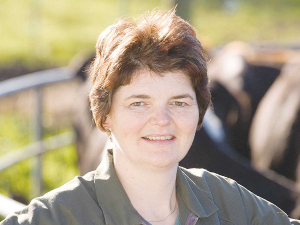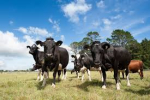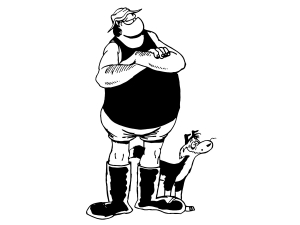CRV is encouraging dairy farmers to carefully consider the bulls they select for mating this season to help them address ongoing herd health issues like mastitis and reduce the need for antibiotics.
Udder health was the topic of conversation for CRV's recent podcast featuring DairyNZ senior scientist Dr Jane Lacy-Hulbert and CRV breeding programme manager Aaron Parker.
Lacy-Hulbert says mastitis is a costly condition for farmers to manage and its treatment often means using antibiotics.
"Farmers are coming under increasing pressure to reduce antibiotic use on farm, particularly because bacteria are developing antimicobial resistance.
"It's a normal phenomenon, but our problem is that we cannot develop new antibiotics fast enough to keep up with the rate at which they develop resistance. So, it really comes down to us and how we use the existing products we have in a wise and prudent way."
Lacy-Hulbert says farmers worldwide are making changes to the way they use antibiotic products.
"We're looking at ways to try and reduce the amount of antibiotics we use, particularly at drying off. This is a time when we've traditionally used dry cow products to prevent infections. Now there is a trend towards using more non-antibiotic alternatives, such as the internal treat sealants, to prevent new infections."
Lacy-Hulbert and the team at DairyNZ have been working to help farmers and vets do things differently.
"We've been carrying out research over the last few years to give vets more confidence about using internal teat sealants, give them more information about cow selection, and which cows to reserve the dry cow therapy for.
"we've also been providing them with more information about hygiene techniques to use when administering the products to help reduce the risk of masitits infections at that time of the season."
DairyNZ has healthy udder resources available to help farm teams to do a good job at drying off. But Jane says there are other things farmers can do throughout the lactation period to help reduce mastitis.
"The classic one is getting teat spraying right and making sure you're getting a good coverage of spray onto each cow's teats.
"It's also important during milking time that we're reducing the likelihood of teat damage by not overmilking."
Lacy-Hulbert says using herd testing data and identifying cows with a high Somatic Cell Count (SCC) can help farmers choose which animals should receive dry cow antibiotics and make wise culling decisions.
"A key part of mastitis prevention is actually removing from your herd cows with high SCCs or those with long-term infections."
She says a lower incidence of mastitis not only means more milk in the vat, but also better animal health.
"No one likes to see cows in pain and mastitis is a painful disease. Less mastitis can also lead to better fertility and we have seen the positive impact mastitis prevention can have on reproduction.
"It also means less hassle at milking time. Milkings are shorter because farmers have fewer cows to treat and deal with at the end of the milking which leads to happier milking teams!"
Parker says CRV incorporates SCC traits in its breeding programme.
"We've put emphasis on SCC in our breeding programme to address the issue and that's exactly what farmers can do as well. Farmers can use their herd testing data to target their high SCC cows and use low SCC bulls as part of their breeding programme to improve that.
"Selecting the right bulls to use will absolutely help reduce the incidence of mastitis," he says. "It's a slow process, but it is also a permanent one and you never lose the gains you make."











